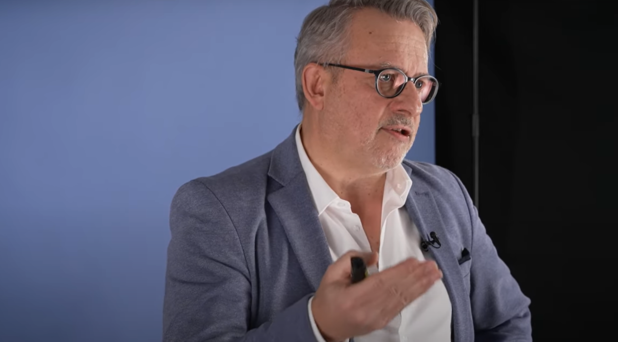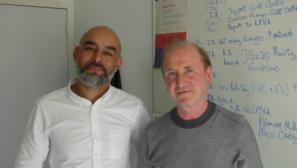
GREGHEC GREGHEC
The ”Groupement de Recherche et d’Etudes en Gestion à HEC Paris (GREGHEC)” is a CNRS - HEC Paris joint research lab. It is located on the HEC campus in Jouy-en-Josas.
GREGHEC is one of the largest joint research laboratories in the fields of economics and management in France.
About the GREGHEC
GREGHEC brings together all the research conducted at HEC Paris and, as such, comprises both disciplinary and cross-disciplinary work. The research activities are organized both across the eight academic departments of HEC Paris corresponding to the main management disciplines and across several multidisciplinary research centers.
GREGHEC is composed of a unique team of 180 researchers (CNRS researchers, HEC faculty and PhD students). It has been a Joint Research Laboratory (or « UMR » for « Unité Mixte de Recherche ») CNRS - HEC Paris since 2006.
Christophe Pérignon, Associate Dean for Research of HEC Paris has been the head of GREGHEC since July 2016. He relies on a Laboratory Council made up of 10 persons elected or nominated (6 researchers, one PhD student, the administrative manager of the Lab and the Dean of Faculty of HEC Paris).
The Laboratory falls within the Section 37 « Economics and Management » of the CNRS National Committee for Scientific Research (CoNRS) and within the CNRS Human and Social Sciences Institute (InSHS). The members of the GREGHEC with permanent positions are called to elect their representatives in the GREGHEC Laboratory Council and in the section 37, but also representatives in two scientific boards of the CNRS (the CNRS Scientific Board and the Scientific Board of the InSHS).

Key Facts
120
HEC Paris faculty
6
CNRS researchers
55
PhD students
75
articles published in peer-reviewed academic journals in 2022
45
publications in A journals in 2022
News
The second biennial workshop of the Society for Eco-Innovation Studies hosted by HEC Paris was a timely reminder of the transformative power of collaboration and interdisciplinary research around eco...
A look back at the first Marseille session, which supported over 150 women from diverse backgrounds on their journey to entrepreneurship.
Florian Förstl, Roger Romero Borda and Shanna Walia share their summer internship experiences and how they landed these opportunities. From working on investment projects at Viessmann to taking on a key...
About the CNRS
 The National Center for Scientific Research, or CNRS, is a public organization under the responsibility of the French Ministry of Higher Education, Research and Innovation.
The National Center for Scientific Research, or CNRS, is a public organization under the responsibility of the French Ministry of Higher Education, Research and Innovation.
Founded in 1939, the CNRS aims to:
- Evaluate and carry out all research capable of advancing knowledge and bringing social, cultural, and economic benefits for society
- Contribute to the promotion and application of research results
- Develop scientific information
- Support research training
- Participate in the analysis of the national and international scientific climate and its potential for evolution in order to develop a national policy
As the largest fundamental research organization in Europe, the CNRS carries out research in all fields of knowledge, through its ten institutes. It covers all scientific disciplines, including the humanities and social sciences, information sciences, engineering and systems, mathematical sciences, ecology and environment, biological sciences, chemistry, nuclear and particle physics, physics, Earth sciences and astronomy.
- More than 1,100 joint and intramural research units
- 95% of units are in partnership with universities, higher education institutions and other research organizations.
- 32,000 researchers, engineers and technicians
- 3.4 billion euros of budget
- 10 Institutes orchestrate the organization’s scientific policy
- 18 divisions manage the laboratories in the French regions
The CNRS contributes to the visibility of French research worldwide through:
- 75 International research laboratories
- 8 CNRS offices abroad (Washington DC, Brussels, Beijing, Tokyo, Rio de Janeiro, Pretoria, New Delhi, Singapore)
Contacts





